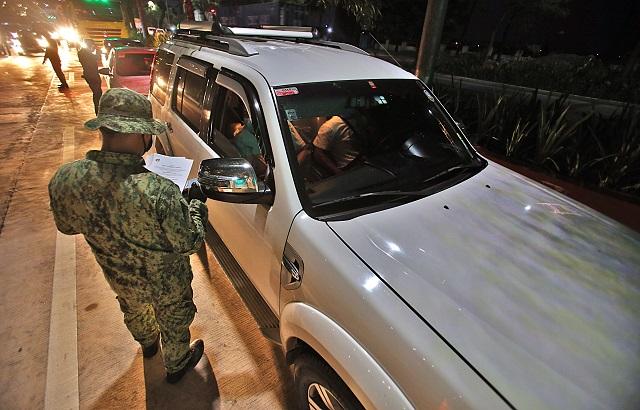Filipinos lost P1.4T in income due to 2020 lockdown restrictions —NEDA

The Philippines can no longer afford any prolonged quarantine as families lost some P1.4 trillion in 2020 due to lockdown restrictions, the National Economic and Development Authority (NEDA) reported Thursday.
In a virtual briefing, Acting Socioeconomic Planning Secretary Karl Kendrick Chua said the quarantine removed P801 billion of spending in 2020, equivalent to P2.2 billion daily. Factoring in the impact on jobs and the multiplier effect, losses are estimated at P1.4 trillion or P2.8 billion a day.
Such quarantine restrictions led to an average annual income loss of P23,000 per worker, but the average level masks wide differences across sectors and jobs, and some workers are hit harder, especially those who lost employment.
The Philippines first implemented the enhanced community quarantine (ECQ) in March 2020, which has been gradually eased to the general community quarantine (GCQ) currently in place in Metro Manila, set to last until the end of January.
"This translates to significant income loss, significant employment loss, and for the most affected sectors, hunger and possibly higher poverty," Chua said in a presentation following the release of the fourth-quarter and full-year 2020 economic data.
"Going forward, we cannot afford any more prolonged quarantines or risk aversion. We have to strike that better balance and we will continue to use data both from the economic and the health side to inform our decision and our recommendation to the President," he added.
A day earlier, the Department of Health (DOH) reported 2,245 new confirmed cases of COVID-19, the highest daily increase since November 8, 2020. This brought the total tally to 518,407, which includes 475,542 recoveries and 10,481 deaths.
"This is the most difficult policy decision we have to make, but we have seen that a careful balance wherein we gradually open the economy, avoid prolonged quarantines and focus rather on localized quarantines, and implementing the minimum health standards actually can give us a better deal," said Chua.
Chua is optimistic that for this year, the continuous calibrated reopening of businesses and mass transportation, as well as the relaxation of age group restrictions, will spur economic activity moving forward along with the availability of COVID-19 vaccines.
"The year 2020 will be remembered as the most difficult year of our lives. The road ahead is challenging, but there is light at the end of the tunnel," he said. —KBK, GMA News




